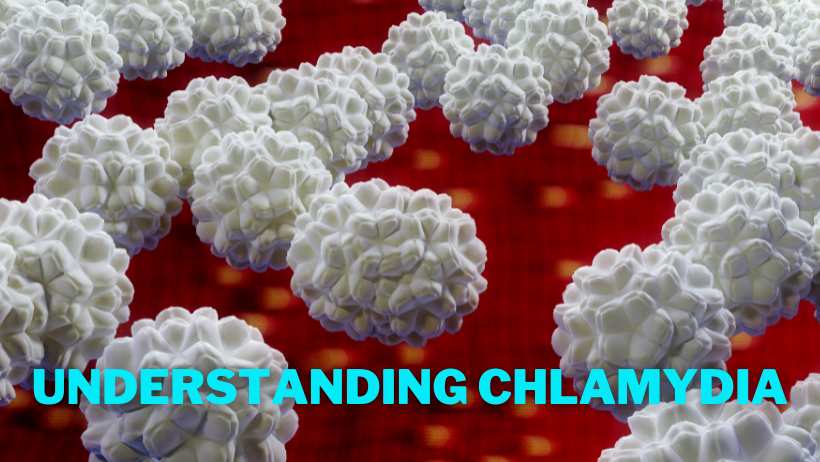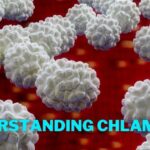
Are you familiar with the name Chlamydia? This bacterial sexually transmitted infection (STI) is relatively prevalent and is readily curable with antibiotics.
In fact, you may not even be aware that you have it, as Chlamydia is frequently asymptomatic, which means that the majority of infected individuals do not exhibit any discernible symptoms.
However, in the event that symptoms manifest, they may consist of aberrant discharge, heat during urination, or genital irritation and itching. Fortunately, Chlamydia testing is straightforward and can be accomplished with a urine sample or a vaginal mucosa biopsy.
Regular testing is especially crucial for women under the age of 25 and anyone who develops symptoms. Chlamydia is readily treatable with antibiotics, and there are no scientifically proved natural remedies that can be of assistance in the event of a diagnosis.
Additionally, it is critical to inform your former companions regarding potential exposure in order to facilitate their access to testing and treatment, if required. It is essential to bear in mind that a Chlamydia diagnosis does not dictate one’s value or integrity; rather, it signifies a mere infection that is readily manageable.
Indicators of Chlamydia
Chlamydia, a prevalent bacterial sexually transmitted infection, frequently manifests with no symptoms. This means that chlamydia could be present without your knowledge. However, in the event that symptoms manifest, it is critical to identify them promptly so that further complications can be avoided and treatment can be sought.
Chlamydia is frequently diagnosed with anomalous discharge, searing sensation during urination, and genital irritation or itching. In light of the fact that these symptoms may be moderate and easily confused with those of other conditions, it is imperative that those who suspect they have been exposed to the infection undergo testing.
Examination for Chlamydia
The procedure of testing for chlamydia is uncomplicated and uncomplicated. There are two primary testing methods: a vaginal mucosa biopsy for women and a urine test for both sexes. Chlamydia can be precisely diagnosed and treatment initiated with the information provided by these tests.
Who, then, ought to undergo chlamydia testing? The answer is straightforward: all sexually active individuals, but particularly women under 25 years of age. Consistent monitoring is critical, and it is advisable to undergo testing on an annual basis or whenever symptoms manifest. You can detect the infection early, receive prompt treatment, and prevent its spread to others by undergoing routine testing.
Medications for Chlamydia
Fortunately, chlamydia is a straightforward infection to manage with antibiotics. Your healthcare provider will prescribe the appropriate antibiotics to eradicate the infection upon diagnosis. It is imperative to adhere to the prescribed regimen of antibiotics in its entirety, notwithstanding any amelioration or resolution of symptoms prior to the medication’s completion.
It is imperative that, apart from receiving treatment for oneself, former sexual companions be duly informed of the potential exposure. This enables them to undergo testing and, if required, treatment, thereby breaking the chain of transmission. Keep in mind that maintaining an open line of communication is vital to your health and the health of your partners in sexual relationships.
Retesting is advised following treatment completion to ensure that the infection has been effectively eradicated. It is essential to affirm with your healthcare provider that you have been cleared of the bacteria, as reinfection is common. This practice promotes comprehensive treatment and mitigates the likelihood of developing chronic complications.
Natural Chlamydia Remedies
Although chlamydia cannot be cured with natural remedies, there are supportive measures that can be implemented to facilitate the healing process. Adequate rest and hydration are critical components of a healthy body and can assist the immune system in combating the infection.
Furthermore, it is recommended to refrain from consuming inflammatory foods, including refined foods and excessive quantities of sugar, due to their potential to impede the healing process. By providing your body with adequate nutrition and care, you can strengthen your immune system and aid in your recovery.
Comprehending the Consequences of Chlamydia
It is essential to keep in mind that a chlamydia diagnosis does not determine one’s value as an individual. It is a prevalent STI that can affect any sexually active individual. Plaquency of chlamydia should not be accompanied by stigma or humiliation.
Chlamydia and other sexually transmitted infections (STIs) are frequently associated with a stigma that can induce emotions of remorse, disgrace, and diminished self-worth. Addressing and confronting these societal stigmas is of the utmost importance if we are to foster an environment that is more affirming and compassionate towards individuals impacted by chlamydia.
Avoidance of Chlamydia
As with chlamydia, prevention is invariably preferable to treatment. Safe sexual behavior is essential for preventing the infection. This includes the consistent and correct use of condoms and the observance of other safe sexual practices, such as avoiding multiple sexual partners and undergoing regular testing.
The utilization of preventative measures, such as dental dams or contraceptives, can substantially mitigate the likelihood of acquiring or disseminating chlamydia. Despite the fact that condoms do not completely prevent the transmission of chlamydia, they do offer a substantial degree of protection.
Additionally, frank communication with your sexual companions and routine testing are essential components of chlamydia prevention. You can detect the infection early and take the necessary precautions to safeguard yourself and your companions by undergoing routine testing. Communicating candidly with one’s companions regarding one’s sexual history and concerns promotes the development of trust and enables well-informed choices.
Chlamydia Among Females
In women, chlamydia can cause complications and hazards that are unique. Chlamydia can cause severe reproductive health complications, such as pelvic inflammatory disease (PID), which can result in chronic pelvic discomfort, ectopic pregnancy, and infertility, if left untreated.
Prevention and screening are vital for women. It is especially critical that women under the age of 25 undergo routine chlamydia testing, given their heightened susceptibility to the infection. The protection of one’s reproductive health and prevention of complications can be achieved through early detection and prompt treatment.
In the event that chlamydia is identified during pregnancy, prompt treatment is of the utmost importance. During childbirth, chlamydia can be transmitted to the infant and cause severe health complications, including ocular infections and pneumonia. Treatment and testing during pregnancy can aid in reducing the risk of transmission and safeguarding your health and that of your unborn child.
Chlamydia affecting males
Chlamydia can generate symptoms and complications in males as well. Frequent manifestations in males encompass penile discharge, urination that feels scorching, and testicular discomfort or edema. Chlamydia can cause complications such as epididymitis, an inflammation of the sperm-carrying tract, if left untreated.
Options for testing and treatment are comparable for men and women. When experiencing symptoms or suspecting exposure to chlamydia, it is critical to undergo testing. Sexual health can be safeguarded and further complications avoided with prompt treatment.
Additionally, to prevent chlamydia, males should engage in secure sexual behavior and consistently use protection. It is critical to undergo routine testing, particularly if you have had multiple sexual partners, in order to detect the disease early and prevent its spread to others.
Chlamydia and the Conception
Chlamydia infection during pregnancy may pose potential dangers to both the mother and the fetus. Chlamydia can elevate the likelihood of preterm birth, miscarriage, and low birth weight if left untreated. During prenatal care, chlamydia testing is essential for expectant women in order to guarantee a healthy pregnancy.
Chlamydia that is identified during pregnancy is treatable with antibiotics that are deemed safe for both the fetus and the maternal organism. Adherence to the recommended treatment regimen and attendance at all prenatal appointments are imperative for the monitoring of both maternal and fetal health.
In order to mitigate the risk of chlamydia transmission to the fetus during the event of childbirth, healthcare professionals may advise individuals with an active infection to undergo cesarean section delivery. Considering the particular circumstances of each instance, this determination is reached case by case.
The Dynamics of Relationships and Chlamydia
Although a chlamydia diagnosis can have an effect on the dynamics of a relationship, overcoming this obstacle requires candid communication and mutual trust. Engaging in candid and transparent dialogues with one’s partner regarding sexual health concerns and potential risk factors is of paramount importance.
Although it may be challenging to discuss the possibility of infidelity, it is critical to do so with compassion and understanding. It is imperative to bear in mind that a chlamydia diagnosis does not inherently indicate adultery; rather, it may stem from unidentified exposure or prior interactions.
Mutual support during the course of treatment is essential for emotional and physical recovery. During this period, it is essential to demonstrate compassion and provide emotional support for your partner. You can strengthen your relationship and surmount the obstacles presented by a chlamydia diagnosis through collaborative effort.
In conclusion, chlamydia is a common bacterial STI that, if left untreated, can result in severe complications despite the absence or mildness of symptoms. Safe sexual behavior, routine testing, and prompt treatment are essential for preventing the transmission of chlamydia and safeguarding sexual health.
Keep in mind that a chlamydia diagnosis does not define your value; you can navigate this experience and maintain healthy relationships with the assistance and support you require.










